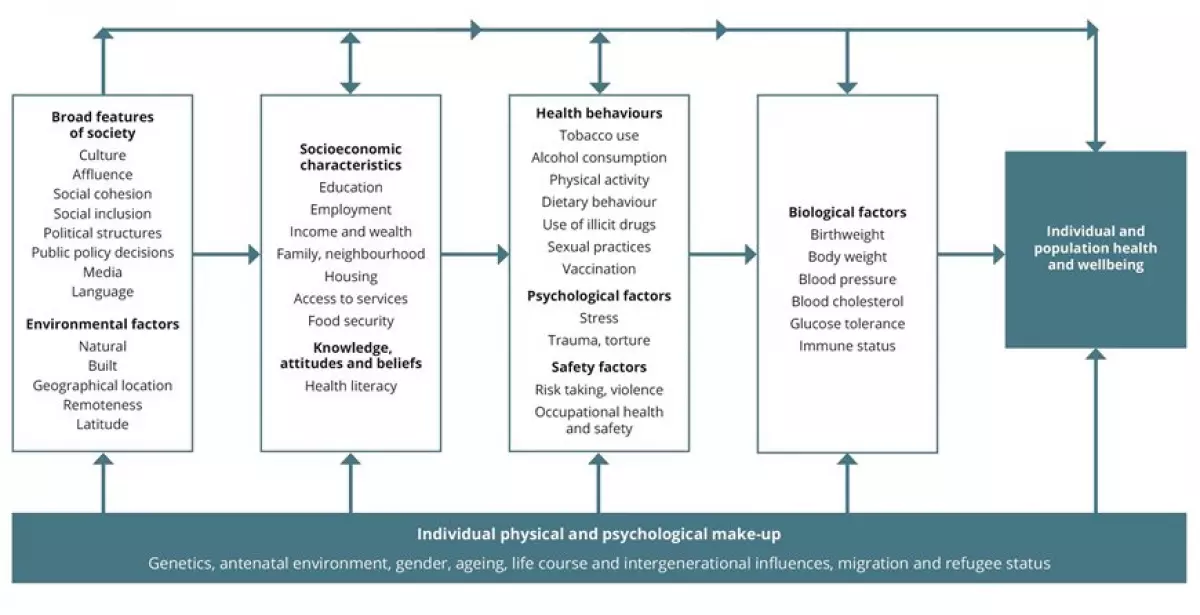Health - it's a word we often hear, but what does it really mean? Is it simply the absence of disease or something more? In this article, we'll explore the concept of health and delve into its various aspects. So, let's jump right in!
Understanding Health
According to the World Health Organization (WHO), health is not just the absence of disease or infirmity, but a state of complete physical, mental, and social well-being. It's a holistic approach that takes into account the complex interactions between genetics, lifestyle choices, and the environment.
 Caption: Health is not just the absence of disease but a state of complete well-being.
Caption: Health is not just the absence of disease but a state of complete well-being.
Factors Influencing Health
Numerous factors can influence a person's health, from socio-economic circumstances to environmental conditions. These factors, commonly referred to as "health determinants," can be either risk factors or protective factors. They work together in intricate ways, shaping the health of individuals and communities.
The framework in Figure 1 provides a visual representation of these factors, illustrating the relationship between downstream behavioral and biomedical factors and upstream risk factors. Socioeconomic characteristics such as education, employment, income, family circumstances, and social support all play a crucial role in determining health outcomes.
 Caption: A framework depicting the various determinants of health.
Caption: A framework depicting the various determinants of health.
Measuring Health
To understand the health of individuals or populations, various measures can be employed. Some commonly used measures include life expectancy, mortality rates, morbidity indicators, disability-adjusted life years (DALYs), and self-assessed health status.
These measures allow us to identify trends, compare different population groups and regions, and monitor specific health conditions. By analyzing health data, we can gain valuable insights into the state of our well-being and identify areas that require attention.
The Role of the Health System
The health system plays a vital role in supporting and maintaining the nation's health. It encompasses a range of services, from hospital care to primary health care and preventative measures like immunization. Health promotion and protection are also integral parts of the system, striving to ensure the best possible health outcomes for all.
Health Data in Australia
Access to comprehensive health data is crucial for assessing health status, service utilization, and making informed decisions to support the well-being of Australians. While significant improvements have been made in data collection and availability, there are still gaps that hinder a comprehensive understanding of certain areas of health.
Efforts are underway to bridge these gaps through data integration, combining information from multiple sources to address complex health questions. The COVID-19 pandemic has further emphasized the importance of timely and accurate health data in responding to public health emergencies.
The Impact of COVID-19
The COVID-19 pandemic has had far-reaching effects on the health and well-being of Australians. Apart from the direct health impacts, such as contracting the virus, the measures implemented to control its spread have had numerous indirect consequences. These include mental and emotional well-being, access to healthcare for non-COVID conditions, and changes in health behaviors.
While the pandemic has presented challenges, it has also brought about positive changes, such as reductions in injuries and infectious diseases. However, it has also placed additional strain on healthcare systems and altered the way people engage with healthcare services.
Conclusion
Health is not merely the absence of disease but a state of complete well-being encompassing physical, mental, and social aspects. It is influenced by a multitude of factors and can be measured using various indicators. The health system plays a crucial role in supporting and maintaining the health of individuals and communities.
As we navigate the challenges brought about by the COVID-19 pandemic, understanding and prioritizing our health is more important than ever. By staying informed and taking proactive steps to care for ourselves, we can strive towards a healthier future.
For more information on health definitions and strategies, you can refer to the World Health Organization (WHO) and the Department of Health National Preventive Health Strategy 2021-2030.
Note: This article has been adapted and enhanced from the original content, retaining the core message while providing fresh insights.


















